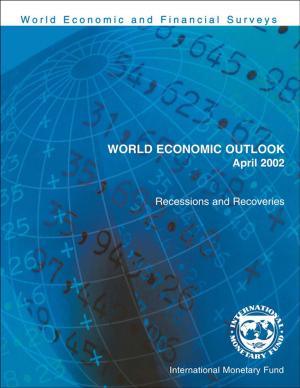Deep Web for Journalists: Comms, Counter-Surveillance, Search
Nonfiction, Computers, Internet, Security, Social & Cultural Studies, Social Science| Author: | Alan Pearce | ISBN: | 9781301799145 |
| Publisher: | Alan Pearce | Publication: | September 11, 2013 |
| Imprint: | Smashwords Edition | Language: | English |
| Author: | Alan Pearce |
| ISBN: | 9781301799145 |
| Publisher: | Alan Pearce |
| Publication: | September 11, 2013 |
| Imprint: | Smashwords Edition |
| Language: | English |
Journalism has been transformed by the Internet and the Internet has opened journalists to levels of surveillance that would have horrified George Orwell. All journalists should be aware of the dangers they face in the digital world – the emerging battleground.
Being a journalist in 2013 is more dangerous than it ever was. In addition to the usual threats, beatings, murders and war casualties, we are now being actively targeted online by intelligence agencies, law enforcement and others.
These days it is not just journalists working in repressive regimes that need worry. We now know that the US and its cyber-allies – Britain, Canada, Australia and New Zealand – actively monitor domestic journalists in their mass surveillance of the Internet.
Edward Snowden has warned journalists that they are special targets and he has expressed surprise that news organizations rarely have any counter-measures in place.
They harvest our contacts and monitor our telephone logs. They read our emails and texts. They follow our every move online and they keep tabs on every line we write.
But it is not just intelligence agencies and law enforcement that we should worry about. All kinds of people have a vested interest in knowing about your next story – individual criminals and criminal organizations, political parties and extremist groups, law firms and the corporate giants.
Large business interests have their own intelligence units. They know what is being said about them and by whom. They keep track of their competitors and they know when somebody starts asking awkward questions about them.
If big business or anyone wanted to destroy a journalist’s reputation this is simplicity itself.
The key is not to attract attention in the first place, and to learn to operate beneath the radar.
But how can journalists safeguard their sources and communicate without being overheard? How can they conduct sensitive research without having to watch their backs?
This book will show how to block intruders, set up secure communications, mask your identity online and browse and download anonymously, and store any amount of data without leaving a trace.
If that wasn't enough, the Deep Web is also a largely-unknown research and information resource. If you know the right entry points, you can mine a rich seam of multimedia files, images, software and documents that you cannot find on the Surface Web.
Deep Web for Journalists “offers an uncompromising diagnosis of the perils of online communications and should shatter the confidence many of us place in the unguarded ways of working online,” says Jim Boumelha, President of International Federation of Journalists in his Foreword to the book.
Journalist, broadcaster and author Alan Pearce has covered conflicts from the Khmer Rouge to the Taliban for the BBC and Time Magazine, among others. He now teaches cyber-security skills and counter-surveillance to journalists.
Journalism has been transformed by the Internet and the Internet has opened journalists to levels of surveillance that would have horrified George Orwell. All journalists should be aware of the dangers they face in the digital world – the emerging battleground.
Being a journalist in 2013 is more dangerous than it ever was. In addition to the usual threats, beatings, murders and war casualties, we are now being actively targeted online by intelligence agencies, law enforcement and others.
These days it is not just journalists working in repressive regimes that need worry. We now know that the US and its cyber-allies – Britain, Canada, Australia and New Zealand – actively monitor domestic journalists in their mass surveillance of the Internet.
Edward Snowden has warned journalists that they are special targets and he has expressed surprise that news organizations rarely have any counter-measures in place.
They harvest our contacts and monitor our telephone logs. They read our emails and texts. They follow our every move online and they keep tabs on every line we write.
But it is not just intelligence agencies and law enforcement that we should worry about. All kinds of people have a vested interest in knowing about your next story – individual criminals and criminal organizations, political parties and extremist groups, law firms and the corporate giants.
Large business interests have their own intelligence units. They know what is being said about them and by whom. They keep track of their competitors and they know when somebody starts asking awkward questions about them.
If big business or anyone wanted to destroy a journalist’s reputation this is simplicity itself.
The key is not to attract attention in the first place, and to learn to operate beneath the radar.
But how can journalists safeguard their sources and communicate without being overheard? How can they conduct sensitive research without having to watch their backs?
This book will show how to block intruders, set up secure communications, mask your identity online and browse and download anonymously, and store any amount of data without leaving a trace.
If that wasn't enough, the Deep Web is also a largely-unknown research and information resource. If you know the right entry points, you can mine a rich seam of multimedia files, images, software and documents that you cannot find on the Surface Web.
Deep Web for Journalists “offers an uncompromising diagnosis of the perils of online communications and should shatter the confidence many of us place in the unguarded ways of working online,” says Jim Boumelha, President of International Federation of Journalists in his Foreword to the book.
Journalist, broadcaster and author Alan Pearce has covered conflicts from the Khmer Rouge to the Taliban for the BBC and Time Magazine, among others. He now teaches cyber-security skills and counter-surveillance to journalists.















